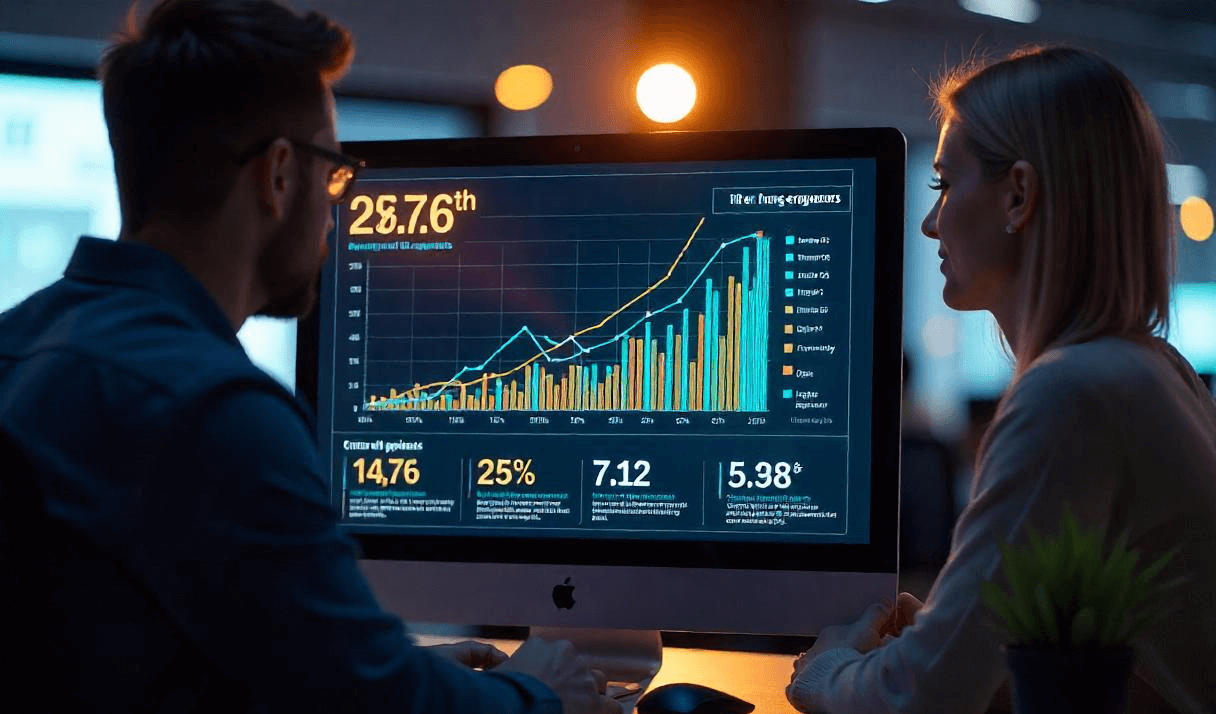Agentic AI: Powering the Next Generation of Autonomous Operations in BFSI

As we step further into the AI-led transformation of the financial services industry, a new term is rapidly gaining attention: Agentic AI. Unlike traditional AI models, which require human instruction for each task, Agentic AI refers to autonomous AI agents that can plan, act, and adapt dynamically across multiple systems and workflows—a paradigm that is set to revolutionize how BFSI (Banking, Financial Services, and Insurance) operates.
What is Agentic AI?
At its core, Agentic AI consists of intelligent software entities that:
- Perceive their environment
- Make decisions independently
- Act toward goals
- Learn from outcomes to improve performance
Unlike narrow AI systems that handle one task at a time (e.g., fraud detection, credit scoring), Agentic AI behaves like a self-directed digital worker. Think of it as a financial analyst or customer service rep that never sleeps, never makes emotional decisions, and gets smarter every day.
Why BFSI is the Perfect Playground for Agentic AI
The BFSI sector is inherently complex, heavily regulated, and loaded with repetitive, rules-based and data-intensive processes—all ideal for automation. However, static rule engines and task-specific bots often lack the intelligence to deal with ambiguity and change.
Enter Agentic AI, which can automate high-value workflows, coordinate across teams and systems, and handle unexpected scenarios in real-time.
Key reasons for BFSI readiness:
- Abundance of structured & unstructured data
- High-volume transactions with strict SLAs
- Demand for real-time risk & compliance monitoring
- Rising pressure on cost-efficiency & personalization
BFSI Use Cases Where Agentic AI Will Shine
- Autonomous Customer Service Agents
Agentic AI can go beyond chatbots and truly understand user context, pull relevant data from back-end systems, and take actions—such as resetting passwords, filing claims, or opening accounts—without manual intervention.
- Dynamic Fraud Detection & Response
Instead of static rule-based fraud engines, Agentic AI can observe transaction behavior, flag suspicious patterns, and initiate preventive actions such as temporarily freezing accounts or escalating alerts to human analysts.
- AI Financial Advisors for Wealth Management
Agentic AI can serve as robo-advisors that dynamically update client portfolios based on market movement, tax laws, or life events. It can also interact with clients to gather goals and propose personalized investment options autonomously.
- Credit Underwriting with Autonomous Agents
Agents can collect alternate data, verify KYC, assess borrower profiles, and offer real-time loan approvals—especially useful for MSMEs and underserved segments with limited credit history.
- Autonomous Risk & Compliance Monitoring
By integrating with internal audit logs, transaction records, and regulatory frameworks, Agentic AI can scan for compliance violations, generate audit-ready reports, and even recommend remediation actions.
How It Works: Key Components of Agentic AI
- LLMs (Large Language Models) for reasoning and natural language communication
- Multi-agent systems that collaborate or compete to solve complex problems
- Memory + Learning Engines to remember outcomes and evolve decisions
- Goal-setting + Planning layers using AI planners (e.g., GPT + ReAct or AutoGPT style agents)
- Tool-use Capability: Integration with APIs, CRMs, and core banking systems
Benefits for BFSI Players
|
Benefit |
Description |
|
Cost Efficiency |
Reduce reliance on large support teams and operations staff |
|
Speed |
Execute tasks in seconds, not hours |
|
Intelligence |
Context-aware and adaptive decision-making |
|
Compliance |
Reduced human error and real-time audit trails |
|
24/7 Operations |
Always-on digital workforce across geographies |
Challenges to Overcome
While Agentic AI is promising, banks and financial institutions must also prepare for:
- Data governance & security: Agents accessing sensitive financial data must be monitored.
- Explainability: Regulators will require agents' decisions to be transparent.
- Human-AI collaboration: Building trust among staff and customers will take time.
- Vendor lock-in & AI overreach: Autonomous agents must be controllable and ethically guided.
The Future: Toward Fully Autonomous Financial Institutions?
In the near future, Agentic AI may lead to:
- Hyper-personalized banking where each customer has an AI concierge
- Self-healing IT operations that resolve outages before humans even notice
- Autonomous trading desks that operate within ethical and regulatory boundaries
- Full-cycle claim processing in insurance—from intake to payout—handled by AI
Some experts foresee a “Bank of Agents”, where dozens of digital agents replace layers of middle management and backend ops.
Conclusion
As Indian BFSI players embrace digital transformation, Agentic AI is poised to become the catalyst for operational autonomy, efficiency, and resilience. It represents a leap from task automation to goal-driven intelligence, unlocking new business models and redefining workforce dynamics.
Banks, insurers, fintechs, and regulators must collaboratively shape the governance, use cases, and ethical frameworks around this technology. Done right, Agentic AI won’t replace humans—it will augment them to deliver next-gen financial experiences.
Recent post
Take Fintegriti for a Test Drive
No License Required!
Still on the fence? Hop in and experience payments so smooth,
even your morning coffee will be jealous



